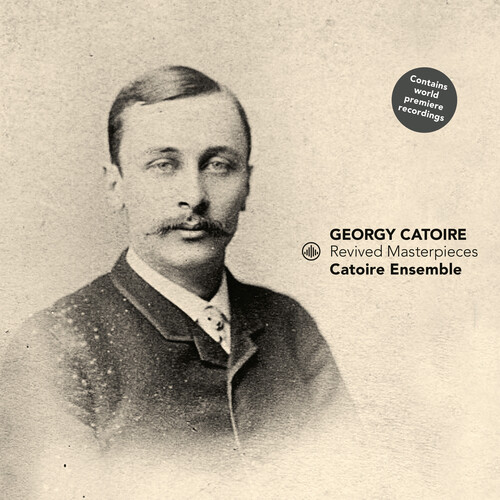Show results for
Deals
- 4K Ultra HD Sale
- Action Sale
- Alternative Rock Sale
- Anime sale
- Award Winners Sale
- Bear Family Sale
- Blu ray Sale
- Blues on Sale
- British Sale
- Classical Music Sale
- Comedy Music Sale
- Comedy Sale
- Country Sale
- Criterion Sale
- Electronic Music sale
- Fantasy Film and TV
- Folk Music Sale
- Hard Rock and Metal Sale
- Horror Sci fi Sale
- Jazz Sale
- Kids and Family Music sale
- Kids and Family Sale
- Metal Sale
- Music Video Sale
- Musicals on Sale
- Mystery Sale
- Naxos Label Sale
- Olive Films on Sale
- Page to Screen Sale
- Paramount Sale
- Pop and Power Pop
- Rap and Hip Hop Sale
- Reggae Sale
- Rock and Pop Sale
- Rock Legends
- Soul Music Sale
- TV Sale
- TV Sale
- Vinyl on Sale
- War Films and Westerns on Sale

Revived Masterpieces
- Format: CD
- Release Date: 5/15/2020

Revived Masterpieces
- Format: CD
- Release Date: 5/15/2020
- Label: Challenge Classics
- UPC: 608917279221
- Item #: 2291036X
- Genre: Classical
- Release Date: 5/15/2020

Product Notes
Georgy Catoire did not have a high opinion of his own First String Quartet, so he destroyed it, sparing only the Andante. On the last page of the manuscript of this movement, Tchaikovsky wrote a few words, and Catoire did not have the heart to destroy the autograph of the great composer. Georgi Lvovich composed a new quartet, which in the inventory of his works is listed as Opus 4. This piece, just like the Andante from the destroyed quartet, was never published and the manuscript seems to have been lost. After a while, Catoire reworked the quartet into a quintet. The manuscript of this quintet, and the surviving Andante, was discovered several years ago. Thus, the recordings of this quintet and the remaining Andante presented on this release are the first performances of these early works of Catoire. Catoire composed the Piano Trio Op.14 in the years 1899 to 1902. Stylistically, the Trio can be placed right in the middle of the compositional path of Catoire, which consciously ties in with the creation of this work to the already existing Russian chamber music literature. But although the Trio is so beautifully anchored in it's time by such parallels, it clearly embodies the characteristic traits that keep Catoire's music away from contemporary trends and that make his personality a special phenomenon in the history of Russian music. The two Poems Op. 34 are late works from Catoire and were composed in 1924-26. At the time Catoire, had experienced the Russian Revolution and the Civil War, the death of his beloved wife, the farewell to his son, who left Russia forever. The music acts like a free speech of the composer in an intimate circle, or even as a soliloquy - so restrained is the dynamics, so freely works the musical speech.

